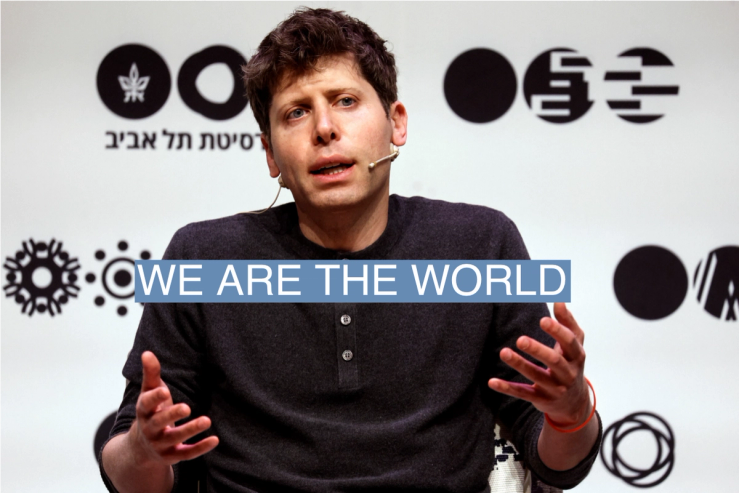The News
NAIROBI — Kenya’s data privacy regulator is warning the public about the use of “sensitive personal data” by WorldCoin, a cryptocurrency company founded in 2019 by Open AI’s co-founder Sam Altman.
Worldcoin, which launched in Kenya last week (July 26), is now being investigated by the Office of the Data Protection Commissioner “to ensure compliance with the law.” In a statement the commissioner urged Kenyans to ensure that they received proper information before disclosing personal sensitive data.
Since its launch last week, thousands of Kenyans have been lining up to have their eye’s iris scanned at supermarkets and malls where WorldCoin has stationed its orbs, the scanning machines, and is collecting biometric data, in exchange of free WorldCoin tokens (WLD) worth about 7,700 Kenyan shillings ($55). These tokens can be cashed out by buying other cryptocurrencies from official exchange platforms such as Binance, and converted to local currency. This is slightly more than half the minimum monthly wage of around $106, according to the Kenya National Bureau of Statistics 2023 report.
In this article:
Know More
According to WorldCoin, over two million people in thirty four countries have signed up since its launch. The company has said that the biometric data scanned using their Orb is processed locally then deleted permanently, only storing the IrisCode — a set of numbers generated by the Orb and not linked to “your wallet or any of your personal information” — which is unique to each individual.
However, its data collection processes have remained unclear, say data experts, with authorities and privacy advocates raising concerns over the company’s handling and processing of large amounts of sensitive biometric data without proper regulations in place.
The company’s co-founder Sam Altman is not new to controversy in Kenya. Last month, moderators who worked for his company OpenAI and helped to train the Chatbot ChatGPT filed a petition in parliament to probe the company, and its local moderation partner Samasource, claiming they were exploited and underpaid.

Muchira’s view
With the current economic situation in the country, it is not surprising to see many Kenyans have rushed to take advantage of what they’d see as free money, regardless of the data privacy concerns raised by privacy advocates. That is why institutions like the Office of the Data Protection are crucial in ensuring that appropriate regulatory frameworks are in place to protect Kenyans from harmful practices and data hawks. However, there remains a gap in regulation, as this is not the first time international companies have set up in Kenya and swept up user information but then soon exited the market. Last year, former information technology minister Joe Mucheru said Kenyans lost $120 million dollars to cryptocurrency scams from mostly international companies in the 2020/2021 financial year.
There has also been a fair degree of local skepticism about data privacy issues including with a government-led digital identity program called Huduma Namba, which launched in 2019 but did not take off largely due to concerns about risks such as privacy concerns and data breaches.
Rita Zagoni, data privacy consultant at Fringe Graph, told Semafor Africa that it was important for any Kenyan to “only share information you really need to, even so when it comes to biometrics.” She added that ensuring one’s proper understanding of the “app or company’s privacy policies you’re sharing data with,” before consenting is the key step towards protecting one’s privacy, even with government regulations in place.
Notable
- The Worldcoin token has become increasingly controversial due its unorthodox approach to trying to solve online identity authentication and income inequality. Semafor’s Technology editor Reed Albergotti broke news of its launch last month.


